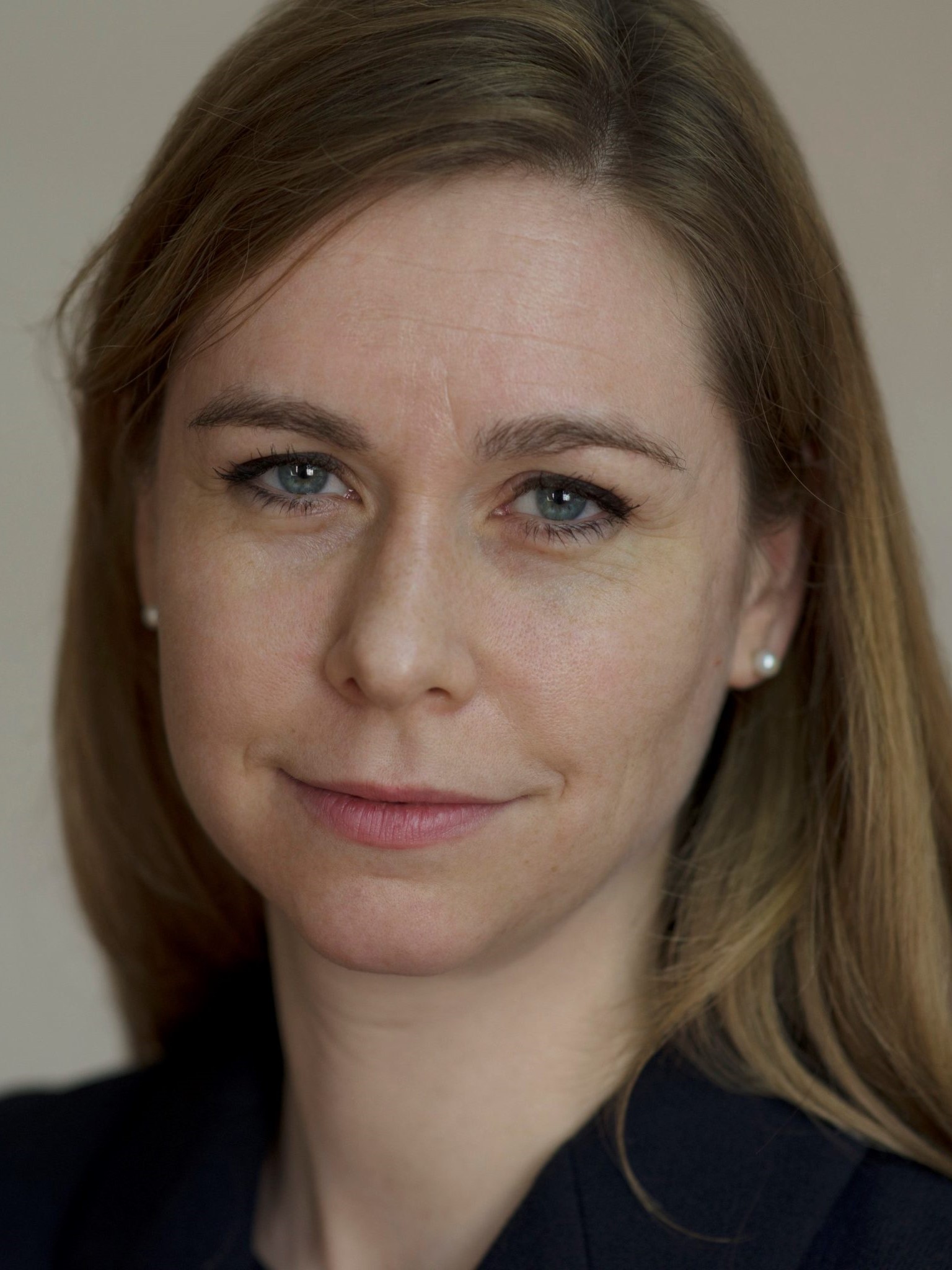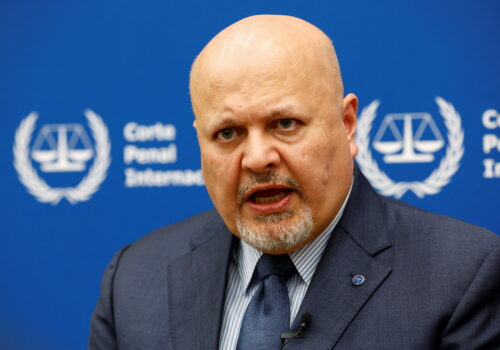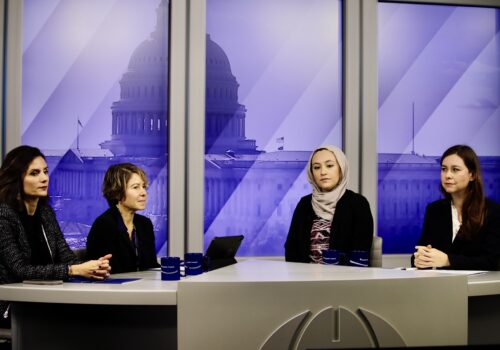Events
All Content
Haydee Dijkstal is a nonresident senior fellow with the Strategic Litigation Project at the Atlantic Council. She is a UK barrister at 33 Bedford Row Chambers in London practicing international criminal law and international human rights law. She is also a US attorney with over a decade of experience in international law.
Dijkstal’s practice in international criminal law has included cases before the International Criminal Court (ICC), International Tribunal for the Former Yugoslavia, and the Special Court for Sierra Leone, and has involved the representation of victims, governments, and those accused. She is currently representing victims at the ICC in the situation in Afghanistan and the situation in Ukraine. Her recent work has also addressed violations by the Islamic Republic of Iran before the ICC and through other legal avenues. This includes representation before the ICC of families of victims of Ukraine International Airlines Flight PS752, which was shot down by Iran in January 2020; raising evidence to the ICC of Syrian victims directly impacted and forced to flee into Jordan by the actions of both the Syrian government and the armed groups of Iran; and acting as counsel for a British-Iranian dual national held hostage in Iran and his family.
Her previous work before the ICC and other international courts and tribunals includes the following: 1) co-counsel representing victims of the Gaza Freedom Flotilla, as well as the Government of the Comoros, in the ICC’s first Article 53(3) judicial review of a prosecutor’s decision not to investigate; 2) member of the legal team for a group of Sudanese victims in the ICC case of Prosecutor v. Banda and Jerbo; 3) member of the ICC defense team for former Libyan spy chief Abdullah Al-Senussi in the Libya situation; 4) member of the legal team for the Government of Kenya for the admissibility challenge in the ICC cases of Prosecutor v. Kenyatta et al., and Prosecutor v. Ruto et al.; 5) co-counsel instructed to submit an amicus curiae brief in the ICC Palestine situation (on the scope of the court’s territorial jurisdiction); 6) co-counsel instructed to submit an amicus brief in the ICC case against Bosco Ntaganda (on the definition of “attack” for war crimes against cultural property).
Dijkstal’s practice in international human rights law includes cases before the European Court of Human Rights, the African Commission and Court on Human and Peoples’ Rights, and United Nations (UN) bodies such as the Working Group on Arbitrary Detention, the Committee against Torture, the Committee on Enforced Disappearances, and UN Special Rapporteurs. For example, her work includes acting as counsel for a British-Iranian dual national held hostage in Iran; the representation of individuals subjected to arbitrary detention; instructions to address attacks against journalists in Afghanistan before the UN as well as the Peoples’ Tribunal on Murdered Journalists and Media Freedom Coalition; and the representation of victims impacted by violations of the right to development, participation and consultation during development projects.
Dijkstal has experience addressing international violations in domestic jurisdictions, including advising a UK parliamentary panel established to investigate and report on Saudi political prisoners and cases submitted on behalf of victims under the principle of universal jurisdiction in the United Kingdom. She has also worked on cases involving the Alien Tort Statute, Torture Victim Protection Act, and Foreign Sovereign Immunity Act in US federal courts.
Dijkstal publishes and regularly speaks on the intersection between the protection of cultural heritage under international law, and international criminal and international human rights law. She holds a BA in international relations from Rhodes College, a JD from the University of Wyoming College of Law, and an LLM in international and comparative law from the George Washington University Law School.


